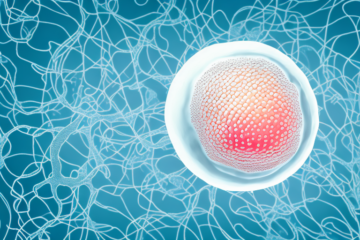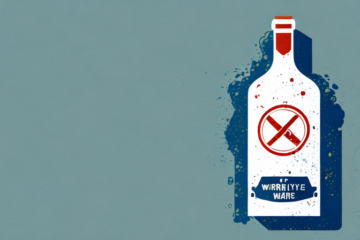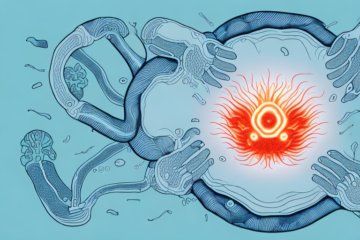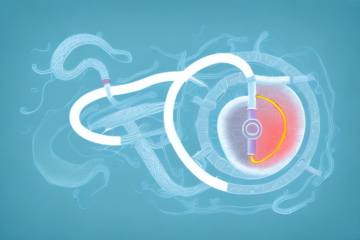Guillain-Barre Syndrome (GBS) is a rare and serious condition that affects just one or two people out of every 100,000 each year. Despite its low incidence rate, GBS can cause a range of symptoms, from tingling in the fingers and toes to complete paralysis. In this comprehensive guide, we will explore everything you need to know about Guillain-Barre Syndrome, including its causes, symptoms, diagnosis, treatment options, and prevention strategies.
Understanding Guillain-Barre Syndrome: A Comprehensive Guide
Guillain-Barre Syndrome is a condition that affects your nerves. Specifically, it is a disorder in which your immune system attacks the nerves in your body. This attack can damage the nerves and interrupt the communication between the muscles and the brain, leading to a variety of symptoms.
The exact cause of Guillain-Barre Syndrome is unknown, but it is believed to be triggered by an infection or virus. The immune system mistakenly attacks the nerves in response to the infection, causing the symptoms of the syndrome. It is important to note that not everyone who gets an infection will develop Guillain-Barre Syndrome.
The symptoms of Guillain-Barre Syndrome can vary from person to person, but often include weakness or tingling in the legs and arms, difficulty with coordination and balance, and muscle weakness that can progress to paralysis. In severe cases, the syndrome can affect the muscles that control breathing and require hospitalization and mechanical ventilation. Treatment for Guillain-Barre Syndrome typically involves supportive care, such as physical therapy and pain management, and in some cases, immunoglobulin therapy or plasmapheresis.
Causes and Risk Factors of Guillain-Barre Syndrome
The exact cause of Guillain-Barre Syndrome is unclear. However, it is thought to be triggered by an infection or virus, such as the flu or Zika. In addition, certain vaccinations, surgeries, or physical injuries have been known to put patients at greater risk of developing GBS.
Recent studies have also suggested a possible link between GBS and exposure to certain chemicals, such as pesticides and solvents. This is still being researched, but it is important for individuals who work in industries where they may be exposed to these chemicals to take necessary precautions to minimize their risk of developing GBS.
Symptoms of Guillain-Barre Syndrome: What to Look For
Symptoms of Guillain-Barre Syndrome can vary greatly from person to person. They can range from mild tingling or numbness in the feet or hands to life-threatening paralysis that affects your breathing and other vital functions. Common symptoms of GBS include weakness in the legs, arms, or face, difficulty speaking or swallowing, and rapid heart rate or blood pressure changes.
It is important to note that the symptoms of Guillain-Barre Syndrome can develop rapidly, often within a few hours or days. In some cases, the symptoms may progress over several weeks. It is crucial to seek medical attention immediately if you experience any of the symptoms associated with GBS.
While the exact cause of Guillain-Barre Syndrome is unknown, it is believed to be an autoimmune disorder in which the body’s immune system attacks the nerves. GBS can affect people of all ages and genders, but it is more common in adults and in males. Certain factors, such as recent viral or bacterial infections, surgery, or vaccinations, may increase the risk of developing GBS.
Diagnosis of Guillain-Barre Syndrome: Tests and Procedures
Diagnosis of GBS is based on a combination of clinical exam and laboratory tests. Your doctor may perform physical and neurological exams to evaluate your symptoms, as well as laboratory tests to measure the amount of certain proteins in your blood and cerebrospinal fluid. Other tests, such as nerve conduction studies or electromyography, may also be ordered in some cases.
In addition to these tests, your doctor may also perform a lumbar puncture, also known as a spinal tap, to collect a sample of your cerebrospinal fluid. This can help to confirm the diagnosis of GBS by showing an increase in protein levels and a decrease in white blood cell count. Imaging tests, such as magnetic resonance imaging (MRI), may also be used to rule out other conditions that may be causing your symptoms.
Treatment Options for Guillain-Barre Syndrome: Medications, Therapies, and More
There is no known cure for Guillain-Barre Syndrome. However, there are treatments that can help manage the symptoms and speed up recovery. These may include intravenous immunoglobulin injections, plasma exchange, or medications to alleviate pain or reduce inflammation. In addition, rehabilitation therapy, such as physical or occupational therapy, can help patients regain strength and mobility.
It is important for patients with Guillain-Barre Syndrome to receive prompt and proper medical care, as the condition can progress rapidly and lead to serious complications. In some cases, patients may require hospitalization and intensive care. It is also important for patients to have a support system, as the condition can be emotionally and mentally challenging. Family members, friends, and support groups can provide valuable assistance and encouragement throughout the recovery process.
Recovery from Guillain-Barre Syndrome: What to Expect
Recovery from Guillain-Barre Syndrome can take several weeks to several years. While many patients will make a complete recovery, others may be left with some degree of weakness or other long-term complications. It is important to work closely with your healthcare provider to develop a comprehensive recovery plan that meets your individual needs and goals.
During the recovery process, physical therapy and rehabilitation may be necessary to help regain strength and mobility. This may include exercises to improve muscle strength and coordination, as well as occupational therapy to help with daily activities. In some cases, speech therapy may also be needed to address any difficulties with speaking or swallowing. It is important to be patient and consistent with your recovery plan, as progress may be slow but steady. Your healthcare provider will monitor your progress and make adjustments to your plan as needed.
Coping with the Challenges of Living with Guillain-Barre Syndrome
Living with Guillain-Barre Syndrome can be a challenge, both physically and emotionally. It is important to have a strong support system and to take steps to maintain your overall health, such as eating a balanced diet, getting regular exercise, and managing stress. If you are struggling with depression or anxiety related to your condition, don’t hesitate to reach out to a trusted healthcare provider or mental health professional.
It is also important to educate yourself about the condition and to stay informed about new treatments and therapies that may become available. Joining a support group or connecting with others who have Guillain-Barre Syndrome can also be helpful in managing the challenges of the condition. Remember to take things one day at a time and to celebrate small victories along the way. With the right support and self-care, it is possible to live a fulfilling life with Guillain-Barre Syndrome.
Prevention Strategies for Guillain-Barre Syndrome
Because the exact cause of Guillain-Barre Syndrome is unknown, there are no definitive ways to prevent its onset. However, taking steps to protect yourself from infections, such as washing your hands frequently and avoiding close contact with sick individuals, can help reduce your risk of developing GBS.
In addition to these general prevention strategies, there are also specific measures that can be taken for individuals who have already had GBS. These include receiving the flu vaccine annually, as well as the pneumococcal vaccine, which can help prevent certain types of pneumonia.
It is also important to note that while GBS is a rare condition, it can be triggered by certain infections or illnesses, such as the Zika virus or Campylobacter bacteria. Therefore, staying up-to-date on vaccinations and taking precautions to avoid these types of infections can also help reduce your risk of developing GBS.
Research and Advancements in the Treatment of Guillain-Barre Syndrome
Researchers are continually working to develop new treatments and strategies to improve outcomes for patients with Guillain-Barre Syndrome. Recent advancements include the use of stem cell therapy and other novel therapies to help speed up recovery and reduce disability. Additionally, a better understanding of the underlying causes of GBS may lead to new prevention strategies in the future.
One promising area of research is the use of immunomodulatory therapies, which aim to regulate the immune system’s response to GBS. These therapies, such as intravenous immunoglobulin and plasma exchange, have shown to be effective in reducing the severity and duration of symptoms in some patients. However, more research is needed to determine the optimal timing and dosage of these treatments.
Understanding the Link Between COVID-19 and Guillain-Barre Syndrome
There is emerging evidence to suggest that COVID-19 may increase the risk of developing Guillain-Barre Syndrome. Patients with COVID-19 have been found to have elevated levels of certain immune system proteins that may trigger an attack on the body’s nerves. It is important for healthcare providers to be aware of this potential link and to monitor patients with COVID-19 for symptoms of GBS.
Guillain-Barre Syndrome is a rare but serious autoimmune disorder that affects the peripheral nervous system. It can cause muscle weakness, numbness, and tingling sensations in the limbs, and in severe cases, it can lead to paralysis. While the exact cause of GBS is unknown, it is believed to be triggered by an infection or a vaccination.
Although the link between COVID-19 and GBS is still being studied, it is important for individuals to take precautions to prevent the spread of COVID-19. This includes wearing masks, practicing social distancing, and washing hands frequently. If you experience any symptoms of GBS, such as muscle weakness or tingling sensations, it is important to seek medical attention immediately.
Stories of Triumph Over Guillain-Barre Syndrome: Inspiring Patient Testimonials
Despite the challenges posed by Guillain-Barre Syndrome, many patients have been able to regain their strength and mobility and return to their pre-illness activities. Their stories are a testament to the power of determination, resilience, and a strong support system. If you are struggling with Guillain-Barre Syndrome, reading about the experiences of others who have been in your shoes may provide you with hope and inspiration.
In conclusion, Guillain-Barre Syndrome is a serious condition that requires prompt attention and appropriate treatment. While there is no known cure, there are a variety of therapies and strategies that can help manage symptoms and speed up recovery. If you are experiencing any symptoms of GBS, don’t hesitate to reach out to your healthcare provider for a comprehensive evaluation and personalized treatment plan.
One of the most inspiring stories of triumph over Guillain-Barre Syndrome is that of a young athlete who was diagnosed with the condition just weeks before a major competition. Despite being paralyzed from the waist down, she refused to give up on her dreams and worked tirelessly with her physical therapist to regain her strength and mobility. With the support of her family and friends, she was able to compete in the competition and even won a medal. Her story is a reminder that with determination and hard work, anything is possible.
Another patient who overcame Guillain-Barre Syndrome is a retired teacher who was left unable to walk or speak after being diagnosed with the condition. Despite the odds, she refused to give up and worked tirelessly with her healthcare team to regain her abilities. With the help of speech therapy and physical rehabilitation, she was able to regain her speech and mobility and even returned to teaching. Her story is a testament to the power of perseverance and the importance of a strong support system.










